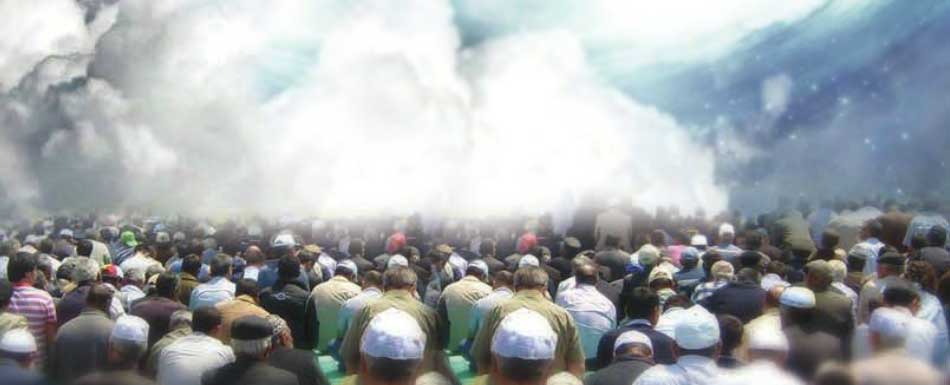How to respond to hostile attitudes

Question: How should we respond to hostile attitudes towards believers?
Whatever the conditions may be, a believer should not go out of the frame of good manners, civility, and decency, for others ascribe all of their actions to faith. Thus, even in the face of the most grave situations or unyielding cases, believers should not swerve from their direction. Examining the life of the Prophet Muhammad, peace and blessings be upon him, we see that he never changed his manners, even at times when he was challenged by Abu Jahl, the man who did all possible evil to oppose the Prophet.
There is occasionally a bitter tone in some of the Qur'anic passages as far as unbelief and unbelievers are concerned. However, we should clarify here that this harsh style is for devious thoughts and ideas, not for individuals. The Qur'anic message does not position any individual as an opponent just because of who they are. It is profane thoughts and views of denial – which are not unique to certain individuals but which have always existed and will continue to exist – that the Qur'an deals with rather harshly. This is a lesson believers should learn from the Qur'an in their engagement with others.
This is an attitude to be adopted not among people only, but among states, too. Let us reify the concept by an example from the Qur'an. God's message to Moses, peace be upon him, concerning his encounter with the Pharaoh was, "but speak to him with gentle words, so that he might reflect and be mindful or feel some awe (of me, and behave with humility)" (Ta Ha 20:44). Speaking with gentle words and softly, even if it is the Pharaoh you are going to deal with – the Pharaoh who afflicted you and your nation with all possible oppression and violence. Another remarkable point here is that the Qur'an binds reflection and God-consciousness to "gentle words." By a reverse conceptualization, we could induce the meaning that "in case you advance towards him in virulence, he shall neither reflect nor stand in awe." So, benignity and tolerance are indispensable articles to communicate a message, whoever the addressee is.
That is, a believer always has to stand in the climate of a gentle attitude, gentle state, gentle heart, gentle conscience, and gentle words, so that they can serve others with true guidance. Otherwise, all the states and attitudes of those who have not been softened, melted, and molded in this Prophetic spirit will be artificial and theatrical. Such insincere people may smile for a while, but they will expose their teeth and present their genuine nature when their tails are stepped upon. Indeed, for how long could a firefly deceive astronomers that it is a star?
In the light of these criteria, it is also possible to read the descent of the Messiah on earth in the latter times with a message of being "without a hand to those who beat you, without a speech to those who curse you, and no hearts for those who break hearts," even if some may consider this out of balance.
The example of Bediuzzaman, the sufferer of the age, is unique. Even towards those who had been his most merciless, inhumane torturers he managed to communicate the truths of faith and was never offended. Indeed, have believers not exerted every single effort to shine the inspirations of their souls to those who dug ditches and pushed them in?[1]
Communicating with someone, or spreading a message, is impossible by raving or clamoring, violence or anger. Maybe violence was once a method or tool; but time has invalidated it. Today, the principle of persuasion is, and will be, dominant ever after. Today's devotees of love should reach the level framed above, and should make abundant practices about that.
As as pointed out above, in the latter times, the Messiah will surely descend on earth in order to fulfill that significant mission, even, say, if he is in the remotest corner of the Hereafter. But this descent is dependent upon the meaning and spirit within your representative, collective body. Yes, he will descend to be the mold for that meaning. If that spirit is missing, I think, his corporeal descent will not mean anything. To conclude, we should know that a resurrection in the latter times will be realized by the reviving breaths of the heroes of love who represent gentle states, gentle attitudes, gentle hearts, and gentle words.
[1] See 85:4 in the Qur'an for the short passage on tyrants who dug ditches of fire and killed believers.
This article has first appeared in the 96th issue of Fountain Magazine (November - December 2013). The Fountain can be reached online at http://www.fountainmagazine.com
- Created on .
